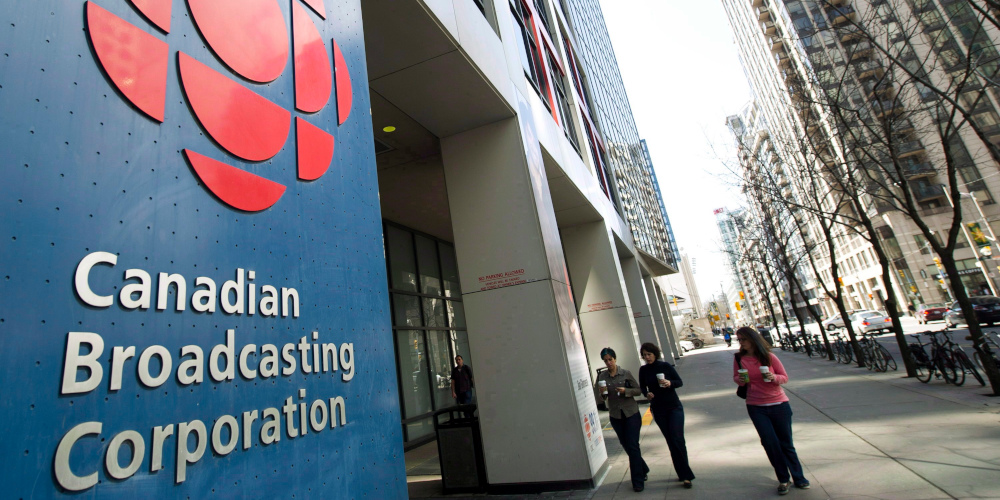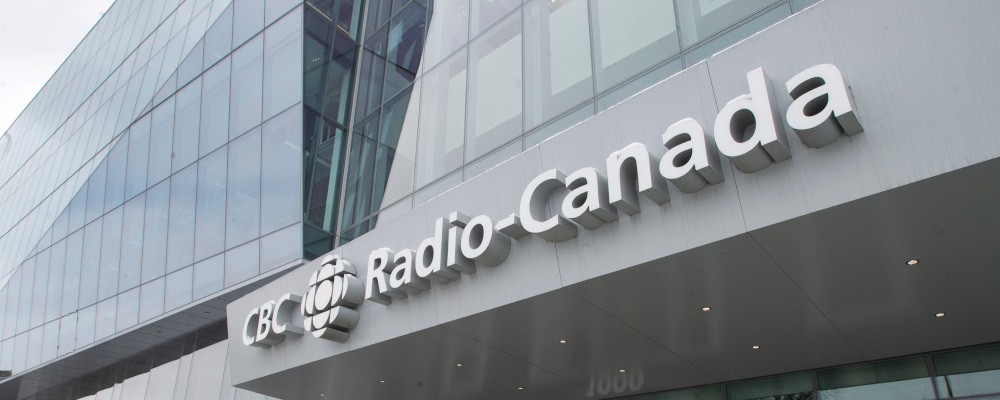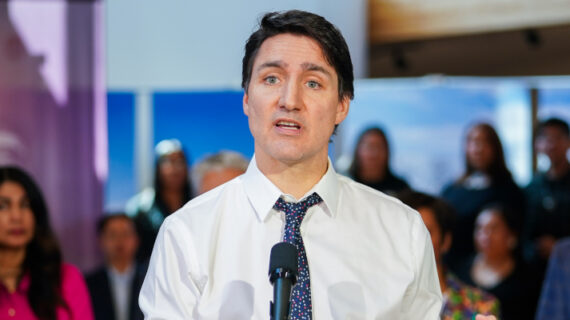
The news media in Canada is in crisis. Policy responses to date are failing to solve for the information that citizens need to make informed decisions about important issues and debates. The Future of News series brings together leading practitioners, scholars, and thinkers to imagine new business models, policy responses, and journalistic content that can support a dynamic future for news in Canada.
The minister of Canadian heritage, Pascale St-Onge, says that she wants to see the role of the CBC “redefined” before the next election. She would like to establish a mandate for the corporation’s activities over the next 10 years. This is a worthy undertaking. As things stand now, the CBC has no agreed mandate.
The Broadcasting Act’s policy for the CBC is no help at all. It requires that the CBC “inform, enlighten and entertain” everyone, including “national and regional audiences, while serving the special needs of regions”, French and English audiences, including “the special needs of official language communities”, while reflecting the “multicultural and multiracial character of the country, indigenous cultures, and disabled people”. In other words, it requires the corporation to be everything to everyone. It is not guidance but a recipe for failure. No organisation on earth could achieve these colossal requirements.
What is needed is for the government to define what it expects the CBC to deliver in a way that is both clear and doable. The United Kingdom does this through the Royal Charter, which is, in effect, a contract between the BBC and the government. It specifies what the BBC will do over the next ten years, along with a commitment to the necessary funding. It is a mandate with teeth.
St-Onge wants to do what no government has ever done before. She also wants to have the new mandate in place within the next year. This will be a challenging undertaking. How best should she approach it to ensure that she is successful?
First, she should NOT under any circumstances set up a committee of worthy Canadians to look into the matter. Such committees are inevitably time-consuming. They always require consultations across the country, new research, and much head-scratching that never takes less than a year. She cannot possibly meet her election deadline if she creates a committee.
Besides, the government might not agree with its conclusions. The history of these gargantuan exercises is that they are simply ignored. They make endless recommendations that are immediately put on the shelf and forgotten.
There is also nothing that a Committee of the Good and the Great could add to our knowledge of the CBC, what different parties want from it, or how the public feels about it. All these matters have been covered extensively by the CRTC at the recent licence renewal hearings for the corporation.
Instead, the government simply needs to make up its mind about the future of the corporation. It needs to produce a mandate that is similar to the Royal Charter, outlining the principles that should guide the CBC’s evolution. To be useful, these cannot be the mush that appears in the Broadcasting Act. They must be clear principles with clear consequences. Inevitably, this will involve difficult choices.
By way of example, most people seem to agree that the CBC should not duplicate the work of the private sector. Why spend public money on what is also already being done? But if that principle is followed, it means that the CBC would have to wind up all of its supper-hour newscasts. It would have to reshape its news to focus on the things that the private sector cannot afford. It would focus on in-depth investigative journalism, international coverage, and national issues.
In a similar vein, is there a financing principle that requires the French and English sides of the corporation to be treated equally? Right now, that is not the case. Radio-Canada receives 44 percent of the government subsidy and the CBC 56 percent. This means that on a per capita basis the French side gets $70 a person and the English $23, making Radio-Canada one of the best-financed public broadcasters in the world and CBC one of the worst. This can only be rectified by either decreasing the money that goes to the French side or dramatically increasing money to the English side.

Similarly, is there a principle that requires equity of service to the different communities in the country? If so, why does Charlottetown, with a population of 44,000 have a radio service and Hamilton, with a population of 580,000 have none?
Sometimes making decisions around these issues does not require new money. Redirecting the news does not need more money; rebalancing the French-English split and building new radio stations does. There is no point in having a new mandate for the corporation that is not properly costed with the necessary resources committed on a multi-year basis. Without the necessary money, the best mandate in the world is only air and dust.
Historically, governments have been afraid to address these contradictions and complexities in a clear way. Much of the reason for the corporation’s current challenges is that no government has had the courage to provide a mandate with real teeth. Without it, however, the CBC/Radio-Canada finds itself in an impossible position. No matter what it decides, it will be crucified. If it winds up the supper-hour newscasts and puts the money into international and investigative news, it will be attacked from every region of the country. The private sector might be happy but most federal politicians will be furious.
Beyond these issues, a proper mandate would need to specify—among other things—whether the CBC should be in advertising, whether it should have an international service, whether it should commission films (a la BBC films), whether it should emphasise broadly popular programming over art house fare, and whether it needs to produce a certain proportion of its news, documentaries, and current affairs as co-productions between the English and French sides of the corporation.

The current environment is extremely challenging. The rise of social media and international streaming services has made it even more imperative to define clearly the role of the public broadcaster in the Canadian media landscape. Very difficult decisions will have to be made.
A proper mandate would not only provide real guidance, but it would also provide the legitimacy that the corporation will need to make hard choices about its future. If we want an effective CBC in 2035 then we need to be very clear about where it should go and how it should evolve.
We will know whether the minister is serious very shortly. If she appoints a committee of worthies, we will know she is not. If, on the other hand, she approaches the problem by negotiating a contract with the CBC—like the Royal Charter—we will know that she is serious. And if that contract were to define the CBC’s mandate clearly for the next ten years with the appropriator financing attached, it would be a historic achievement.
The Future of News series is supported by The Hub’s foundation donors and Meta.




